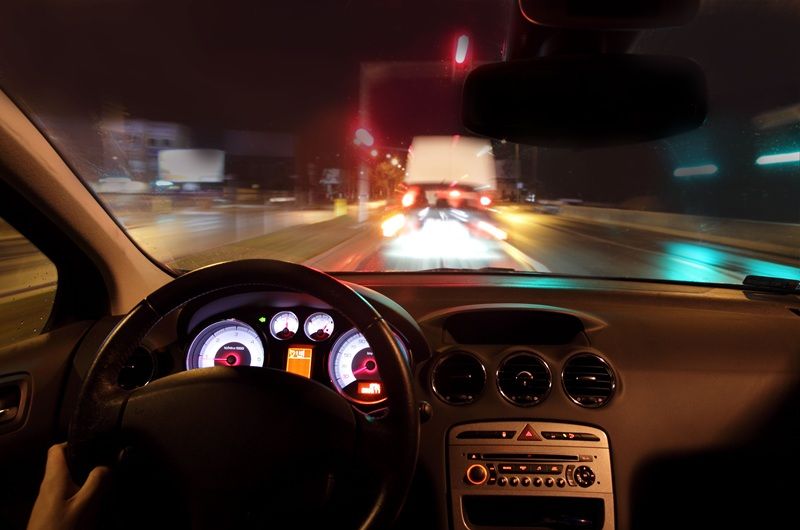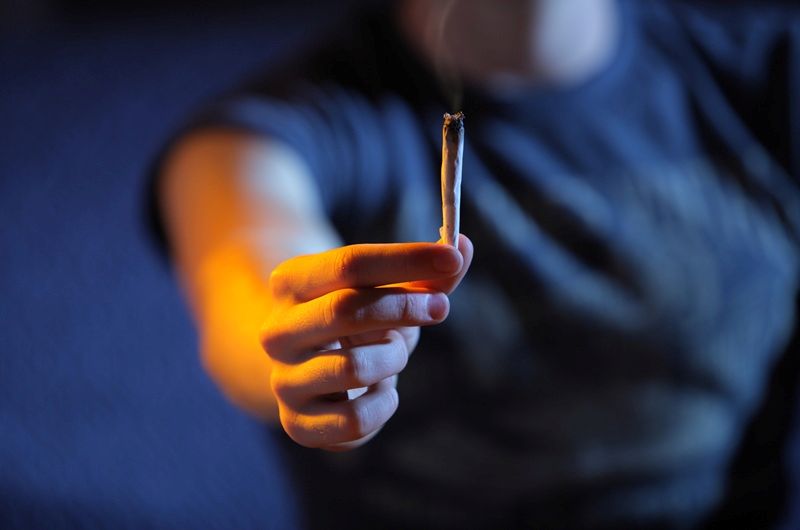Being pulled over and charged with a serious traffic offense can feel alarming, especially if you’re unsure what you’re facing. Some people assume that DUI and reckless driving are interchangeable, but Virginia law treats them differently. Knowing the distinction can impact the way you plan your defense.
This article explains the key differences between DUI and reckless driving in Fairfax County, Virginia. It covers the penalties for each offense and explores legal strategies to reduce or avoid DUI consequences. If you’re facing charges, understanding your options can help you make informed decisions about your defense.

Key Differences Of DUI & Reckless Driving In Fairfax County
DUI and reckless driving are two of the most common traffic-related criminal offenses in Fairfax County. Unlike minor roadway infractions, both carry criminal penalties. Knowing how these charges are determined can help you understand the potential consequences.
Legal Definition
Driving under the influence (DUI) in Virginia means operating a motor vehicle while impaired by alcohol, drugs, or both. A driver meets the legal alcohol limit if their blood alcohol concentration (BAC) reaches 0.08% or higher. However, a DUI charge isn’t solely based on this legal threshold.
Even with a lower BAC, an officer can arrest a driver if they believe impairment affects their ability to drive safely. This judgment may rely on breathalyzer results, field sobriety tests, and the officer’s observations of movement and speech.
Reckless driving, however, is defined as operating a vehicle on any highway, endangering another person’s life, limb, or property. This offense covers a broad range of unsafe driving behaviors, including:
- Driving at least 20 mph beyond the speed limit or exceeding 85 mph, regardless of the posted limit.
- Racing or engaging in aggressive driving behaviors, such as tailgating or improper passing.
- Failing to yield to emergency vehicles or passing a stopped school bus.
While both charges are serious, law enforcement determines them in different ways. DUI is based on chemical tests and observed impairment, while reckless driving relies on a driver’s speed, actions, or manner of driving. You can be charged with reckless driving without consuming any alcohol or drugs.
Penalties & Legal Implications
DUI penalties in Virginia increase based on BAC levels, repeat offenses, and aggravating factors. A first DUI offense is a Class 1 misdemeanor, punishable by a $250 fine and a one-year license suspension. A BAC between 0.15% and 0.20% results in a five-day jail sentence, which increases to ten days for a BAC over 0.20%.
A second DUI offense within five years carries a $500 fine, a one-month jail term, and 20 mandatory days. A third offense within ten years is a Class 6 felony, with a $1,000 fine and at least 90 days in jail. To prevent further crimes, DUI convictions may also require substance abuse programs and ignition interlock devices (IID).
While DUI charges are severe, reckless driving is another serious offense with distinct penalties. It is classified as a Class 1 misdemeanor, carrying up to 12 months in jail, a $2,500 fine, and a six-month license suspension. If reckless driving leads to death, it can escalate to a Class 6 felony with at least 12 months in jail.
Although both offenses have significant consequences, DUI penalties are generally harsher. In some cases, reducing a DUI to reckless driving can result in less severe penalties, making a strong legal defense essential for a more favorable outcome.
When DUI Charges Can Be Reduced To Reckless Driving
Prosecutors may sometimes reduce a DUI charge to reckless driving, known as “wet reckless,” when alcohol is involved. This lesser charge can lead to reduced penalties compared to a DUI conviction. However, whether a prosecutor agrees to this reduction depends on several factors. A DUI may be reduced to reckless driving if:
- Your BAC was close to or below 0.08%.
- You have no prior DUI offenses or serious traffic violations.
- The prosecution’s evidence is weak, such as questionable breathalyzer accuracy or improper police procedures.
- You acted and cooperated appropriately with the police.
- No accidents or injuries occurred as a result of the alleged DUI.
A wet reckless charge may carry the penalties of a reckless driving offense but avoids some harsher consequences of a DUI. While it may still involve fines, probation, and alcohol education programs, it does not come with mandatory jail time or extended license suspensions.
Securing a charge reduction requires strong legal arguments and a deep understanding of prosecuting DUI cases. If you are facing DUI charges, exploring potential defenses and negotiating for a lesser charge can be a turning point in your case.
Key Defense Strategies To Avoid Conviction
With the proper legal defense, you can challenge the charges against you. Police must follow strict procedures, and any mistakes they make could weaken the prosecution’s case. You can use these key strategies to fight a driving charge.
Challenge The Evidence
Breathalyzers can produce inaccurate readings due to improper calibration, maintenance issues, or operator error. Field sobriety tests are also subjective and can be affected by poor lighting, uneven road conditions, or medical conditions unrelated to alcohol use.
Question The Traffic Stop
An officer must have a valid legal reason to pull you over, such as a visible traffic violation or erratic driving. If there was no legitimate basis for the stop, any evidence gathered afterward may be inadmissible in court.
Examine Police Procedures
Officers must follow strict legal guidelines when conducting DUI stops, arrests, and tests. The case may be weakened or dismissed if they fail to inform you of your rights, mishandle evidence, or make procedural mistakes.
A strong defense can be the key to reducing or dismissing a charge. Understanding common DUI and reckless driving questions can help you better navigate your legal options.
FAQs About DUI & Reckless Driving Charges
Understanding the legal consequences of DUI and reckless driving can be difficult, especially if you’re facing charges for the first time. Here are answers to common questions that can help clarify what to expect and how these charges may impact your future.
Does Reckless Driving Carry The Same Stigma As A DUI?
While both charges are misdemeanors, a DUI is generally viewed as more serious, particularly by employers and insurance companies. A reckless driving conviction may still appear on background checks, but it does not carry the same long-term consequences as a DUI.
How Long Will A DUI Remain On Your Record?
A DUI conviction stays on your criminal record permanently, meaning it cannot be expunged. It also stays on your driving record for 11 years, which can impact insurance rates and driving privileges. Reckless driving remains on a driving record for 11 years but may be easier to reduce or negotiate in court.
Can One Incident Lead To DUI & Reckless Driving Convictions?
No. Under Virginia Code § 19.2-294.1, the court must dismiss one of the charges upon conviction if a driver is charged with DUI and reckless driving for the same offense. This prevents a person from being penalized twice for the same conduct.
Even a single traffic-related conviction can affect your record and future opportunities. If you are facing charges, knowing your legal options and possible defense strategies is essential to protecting your rights.
Fairfax County Criminal Attorneys Fights Relentlessly For You

A DUI charge can disrupt your life, leaving you worried about losing your license, paying steep fines, or even facing jail time. However, a charge is not a conviction, and the correct legal strategy can make a significant difference. At Fairfax County Criminal Attorneys, we understand what’s at stake and are here to fight for advantageous outcomes.
Our experienced defense attorneys for DUI and other traffic-related offenses have successfully handled cases in Fairfax County and across Virginia. Whether it’s challenging evidence, negotiating reduced charges, or taking your case to trial, we build defense strategies tailored to your situation.
Our firm thoroughly examines every detail breathalyzer accuracy, police procedures, and potential rights violations to find weaknesses in the prosecution’s case. A DUI conviction can have long-term consequences, but with our dedicated legal team, you won’t have to face it alone. Let us help you protect your future.
DUI and reckless driving are severe offenses in Virginia but differ in legal definitions and penalties. DUI involves impairment from alcohol or drugs, while reckless driving refers to operating a vehicle in a way that endangers others. These offenses can incur fines, license suspension, and a criminal record, but DUI generally carries more severe consequences.
The proper defense strategy can significantly impact the outcome of your charges. Fairfax County Criminal Attorneys has the experience and dedication to help you pursue favorable outcomes. Your choices now can affect your future securing strong legal representation is the first step in protecting it.




